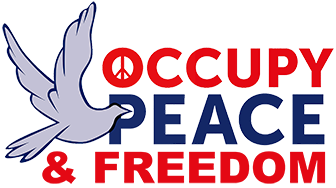by Ted Galen Carpenter Posted on
There continue to be sharply competing narratives about what relevance Russia’s invasion of Ukraine might have for the Taiwan issue. One school of thought contends that Moscow’s flagrant violation of international norms against using force to deal with a territorial dispute might encourage the People’s Republic of China (PRC) to do the same to resolve the long-festering problem of Taiwan’s political status. That is especially true, proponents assert, if Vladimir Putin’s government succeeds in achieving its objectives: forcing Kyiv to renounce ambitions to join NATO, accept the territorial amputation of Crimea, and recognize the “independence” of the secessionist Donbas statelets.
The opposing thesis argues that because the Russian offensive has been slower, much more difficult, and more costly in both treasure and blood than the Kremlin ever imagined, those bitter lessons are likely to reduce any temptation that PRC leaders might harbor to adopt a similar aggressive strategy toward Taiwan. According to that reasoning, Russia’s failure to achieve a quick, decisive, and low-cost victory in Ukraine has caused Beijing to realize that attempting to conquer the island could be far more difficult and costly than previously thought. Therefore, an invasion of Taiwan has become less likely.
When considering the likely impact of the Ukraine war on Taiwan’s probable future it is imperative to recognize one important similarity between the two issues. In both cases, the great power involved made it clear that there were “red lines” that dare not be crossed. For Russia, it was the West’s continuing effort to make Ukraine a NATO military asset For the PRC, a key red line is any effort on Taiwan’s part to achieve formal independence. Indeed, Taipei’s continuing refusal to discuss unification with the mainland under Beijing’s formula of “one country, two systems” may ultimately prove to be a provocation sufficient to push matters over the edge.
Beijing’s warnings against Taipei’s persistent, sometimes bold separatist actions that have taken place during Tsai Ing-wen’s administration are becoming noticeably more emphatic. So, too, are the warnings to “outside powers” – principally the United States and Japan – against encouraging and facilitating such ambitions. Again, the similarities between the PRC’s posture and Putin’s steadily escalating warnings to NATO about Ukraine are striking.
Washington, though, has pressed ahead with its support for Taiwan, just as it blew through red light after red light regarding NATO’s expansion to Russia’s border. Throughout Donald Trump’s presidency, security cooperation between the United States and Taiwan increased to the point that it began to look like a full-fledged military alliance. Under President Biden, that trend has continued unabated. Biden’s repeated statements that Washington has an obligation to defend Taiwan from attack have generally been dismissed as gaffes from a notoriously gaffe-prone individual, since the U.S. commitment under the 1979 Taiwan Relations Act is far more limited and vague. However, US actions under both Trump and Biden suggest that that the president is accurately describing Washington’s actual policy.


Recent Comments